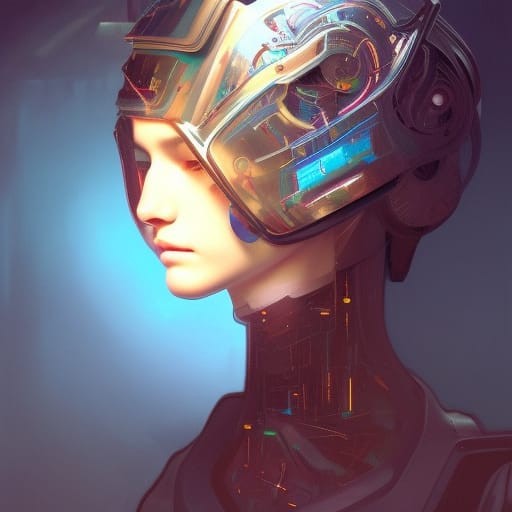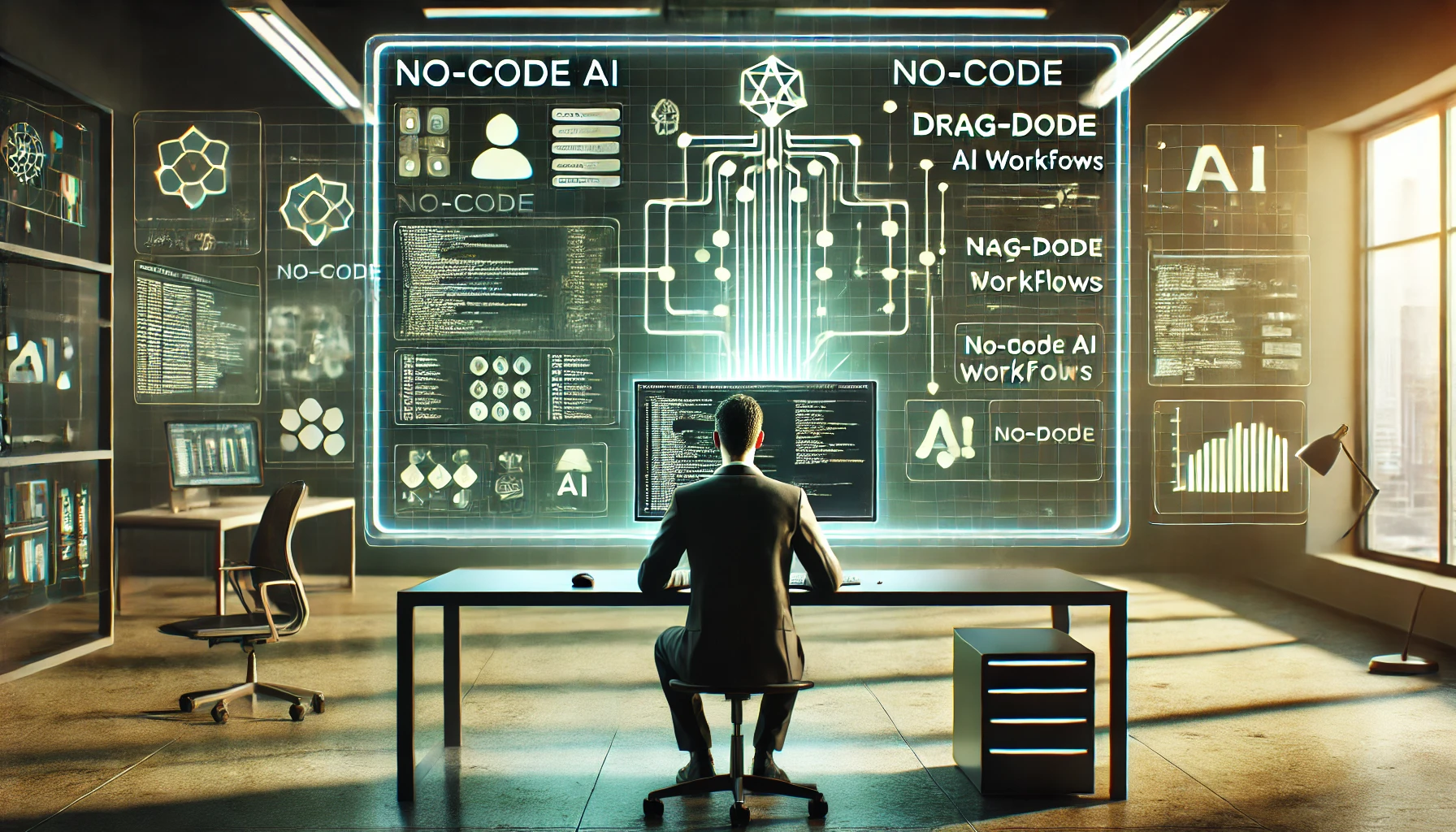By Benno Pieters using ChatGPT 3.5 and Stable Diffusion.
Everybody is talking about it!
AI, or artificial intelligence, is a topic that is being discussed everywhere these days. A survey on LinkedIn shows that 55% of people see AI as an important development. While there is plenty of talk about the potential drawbacks of AI and fears about how it could go wrong, there is also a positive outlook for the years to come. Let’s take a look at some of the technological developments that are expected to take place between now and 2028.
Turing test
There are already many exciting developments in the field of AI and it is expected to accelerate further over the next five years. For example, the Turing test on chatGPT 5 will be tested next year. This is a test that assesses whether an AI chatbot can simulate human behavior to such an extent that we can no longer distinguish it from a real human being. It promises to be an important step in the development of conversational AI.
Virtual actors
Another exciting development is the emergence of videos and movies featuring virtual people. In the summer of 2024, we can expect this technology to matureenough has become and is widely used. This opens the door to new possibilities in the entertainment industry and offers filmmakers and content creators a whole new dimension to work with.
Automatic ordering and payment of services
In the next five years, we will also witness the emergence of automotive AI assistants that link different apps and processes together. These assistants will be able to perform tasks such as planning holidays and automatically booking them, recommending restaurants and automatically reserving, calling a collection center, ordering and arranging delivery. These are only small tasks that are already possible now, but towards 2028 we will notice a lot of this.
Cultured food.
Another area that is emerging is cultured food. While it is currently still experimental and in the build-up phase, it is expected to go mainstream in two years. Cultured food refers to food produced through cell culture and biotechnology. This has the potential to transform food production and enable us to produce food more sustainably and efficiently.
Smart Homes.
Another remarkable development is the full roll-out of smart homes. Although smart homes already exist, they are currently still limited in their functionality. However, in the next five years we will see the full rollout of smarthousing technologies that can communicate seamlessly with each other. This means we can fully automate our homes and control them remotely through our smartphones.
Internet of Things
In terms of technology, we will also see wider integration of the Internet of Things (IoT) in the coming years. Devices will become increasingly connected and integrated into our daily lives, making our lives easierbecome clearer and more efficient. Think, for example, of smart devices in the home, such as refrigerators that automatically reorder products when they run out, or smart thermostats that adjust the temperature based on your preferences and presence.
Smart Cities
Another aspect of technological progress is the emergence of smart cities. These cities use advanced technologies, such as sensors, data analytics and AI, to optimize urban infrastructure and improve the lives of the inhabitants. This includes, for example, smart traffic systems, efficient energy management, automated waste management and improved public safety.
Super fast computers
An important development in the field of computers is the continuous increase in computing power. We have rapidly evolving computer systems capable of performing complex calculations and analyses. This opens the door to new applications and possibilities in various fields, such as scientific research, data processing and AI development.
A promising development that will change the horizon of technology is the emergence of quantum computers. Although quantum computers are still in the experimental stage, they are expected to be ready for large-scale use in about four years. Quantum computers have the potential to exponentially increase computing power and solve complex problems that were previously impossible.
Digital money
2026 will also see the introduction of the Central Bank Digital Currency (CBDC), with a soft launch from 2024. This means that national banks will issue digital currencies that will complement or replace traditional physical currencies. This has potentially major implications for the financial industry and the way we make payments and conduct financial transactions.
Programmable money
An interesting development that is discussed,his payments associated with good behavior. This means that individuals are rewarded for positive behaviour, such as environmentally friendly choices or healthy lifestyles, through financial incentives. This concept could contribute to promoting sustainability and health in society.
Another aspect of the technology landscape is the emergence of “socialcredit scores’. This means that individuals are rated according to their behavior and activities in society, and that these scores can affect various aspects of their lives, such as creditworthiness, access to certain services and even social status. However, this concept also raises questions about privacy and ethics.
Anti-aging
In addition to technology, there are also developments in the field of health and safety.Research anti-aging are ongoing and are expected to be against
2030 clinical trials will take place to find potential solutions for slowing down or reversing the aging process. These studies aim to improve longevity and quality of life by treating age-related diseases and promoting healthy aging.
Brain Machine Interfaces
In addition to the AI and technology advances mentioned, there is also exciting research going on into brain-machine interfaces (BMI), also known as brain-computer interfaces (BCI). These interfaces enable direct communication between the human brain and external devices. The aim is to improve the interaction between the brain and technology, which could have major implications for healthcare, rehabilitation, communication and even human skills.
Cybersecurity
Another important aspect to be addressed in the coming years is cybersecurity. With the increasing integration of technology in our daily lives, such as smart homes, smart cities and cameras in various devices, the importance of security is also increasing. There will be a greater focus on developing robust cybersecurity solutions to protect personal data from cyber-attacks and ensure the privacy of individuals.
Privacy
However, it is important to note that the privacy rules that apply to companies do not always apply to the government. This raises discussions about the balance between privacy and security. It is critical that appropriate regulations and oversight mechanisms are developed to protect the privacy of individuals, whether the data is collected by companies or government agencies.
What can we expect more?
In short, the future projection to 2028 shows some exciting developments in the field of AI and technology. We can expect AI to continue to evolve, with the introduction of advanced chatbots and virtual humans in videos and movies. Smart homes will spread further and simplify our daily tasks, while the Internet of Things will integrate our lives even more with technology. Quantum computers and smart cities will open up new possibilities, but it is important to pay attention to issues such as cybersecurity and privacy protection. All in all, the coming years will be an interesting time as technology continues to transform our daily lives and bring new opportunities and challenges.
So what do you think? Are we going to be overwhelmed by all these developments? Or are will it be tempered by the adaptability rate of people?




